Responsible Gambling
Learn about problem gambling, its risks, signs, and access resources for support to ensure safe and responsible gambling practices

Understanding Problem Gambling
Problem gambling represents the extreme end of a gambling behavior spectrum as identified by the Canadian Problem Gambling Index (CPGI). This spectrum includes:
- Non-gambling: Individuals who do not engage in gambling activities.
- Non-problem gambling: Gambling activities that are recreational and do not negatively impact the individual’s life.
- Low-risk gambling: Gambling activities that may have minor impacts but are generally controlled and within acceptable limits.
- Moderate-risk gambling: Gambling that starts to cause problems, such as financial stress or relationship issues.
- Problem gambling: When gambling becomes compulsive and uncontrollable, leading to significant harm to the gambler and those around them.
What Is Problem Gambling?
Problem gambling occurs when an individual loses control over their gambling habits, leading to behaviors that are detrimental to their health, relationships, and financial stability. This condition is recognized as an addiction in the Diagnostic and Statistical Manual of Mental Disorders (DSM), which underscores the need for professional treatment. Problem gamblers often exhibit behaviors such as:
- Betting more than they can afford: Continuously gambling beyond their financial means.
- Deceptive behaviors: Lying to friends and family about their gambling activities and finances.
- Aggression and defensiveness: Reacting negatively when confronted about their gambling.
- Chasing losses: Continually gambling in an attempt to recover lost money.
Why Does Gambling Get Out of Control?
Gambling can become addictive due to the stimulation of the brain’s reward centers, similar to the effects of certain drugs. The pleasure derived from winning releases dopamine and serotonin, creating a sense of euphoria. Over time, the brain becomes dependent on this sensation, leading the individual to prioritize gambling over other aspects of their life, including their relationships and financial responsibilities.
Identifying a Problem Gambler
Problem gambling shares symptoms with other forms of addiction. Key indicators include:
- Secrecy and defensiveness around finances and free time.
- Surprising outbursts of aggression when questioned about gambling.
- Frequent requests to borrow money or unexplained financial shortfalls.
- Signs of depression or anxiety, often linked with gambling-related stress.
- Suicidal thoughts or tendencies, which can occur when the individual feels trapped by their addiction.
How to Combat Problem Gambling
If you or someone you know is struggling with problem gambling, seeking help is essential. The first step is to acknowledge the problem and reach out for support. Professional help, such as therapy and support groups, can provide the necessary tools for recovery. Here’s how to start:
- Join Gamblers Anonymous: A 12-step program offering group support and the opportunity to connect with a sponsor who can provide guidance and encouragement.
- Engage in alternative activities: Distractions such as hobbies or social activities can help reduce the urge to gamble.
- Seek support from family and friends: A strong support system is crucial in the recovery process. Loved ones can help keep the individual grounded and provide the necessary reality checks.
Where to Get Help for Problem Gambling in Canada
For those seeking help, there are numerous resources available across Canada:
- Responsible Gambling Council (RGC): Offers education, awareness programs, and direct support for individuals struggling with gambling. Contact them at 1-800-522-4700.
- Canadian Centre on Substance Abuse (CCSA): Provides a national resource on problem gambling and addiction services. Visit www.ccsa.ca.
- Canadian Mental Health Association (CMHA): Offers mental health support and can connect you with local services. Visit www.cmha.ca.
- Credit Canada: A not-for-profit organization helping Canadians manage and overcome debt, providing relief from financial pressures that often accompany problem gambling. Visit creditcanada.com.
- Gamblers Anonymous: A global support network offering meetings and resources for those struggling with gambling addiction. Visit www.gamblersanonymous.org.
- Gambling Therapy: An online service offering support and resources for people affected by problem gambling globally. Visit www.gamblingtherapy.org.
- GamTalk: An online community where people can share their experiences and support one another in overcoming problem gambling. Visit www.gamtalk.org.
Slot Tips for Responsible Gambling
While playing slots can be entertaining, it is important to approach it with caution and a clear strategy to avoid falling into problem gambling:
- Set a budget: Always gamble with money that you can afford to lose. Never chase losses by betting more than your predetermined budget.
- Know when to walk away: It’s crucial to recognize when to stop playing, especially during a losing streak. Don’t let emotions drive your gambling decisions.
- Take regular breaks: Avoid extended gambling sessions. Taking breaks helps to maintain control and keeps gambling fun rather than compulsive.
By following these tips and understanding the risks, you can enjoy gambling responsibly. Always remember that help is available if you or someone you know starts to struggle with gambling-related issues.




